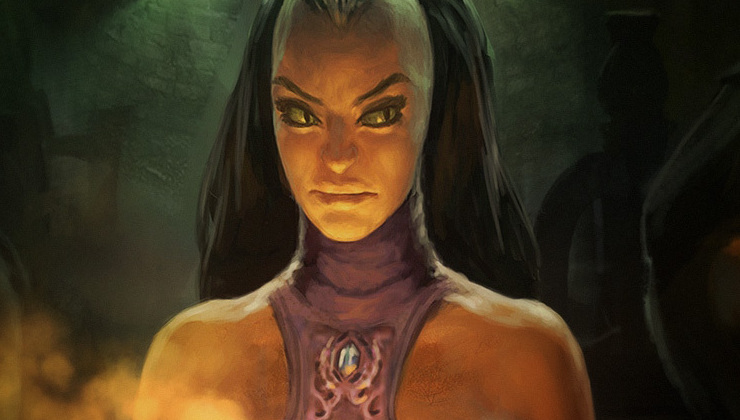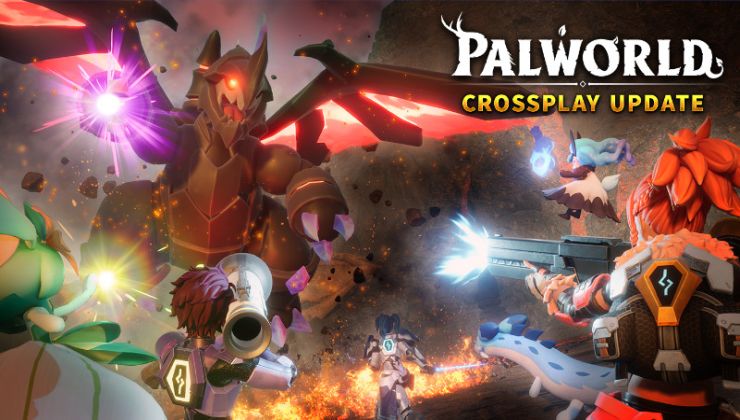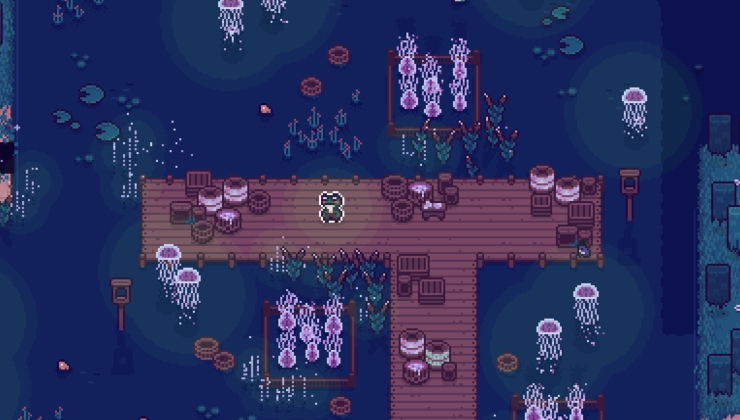As you might have heard by now, Canonical has made the decision to drop 32bit support from Ubuntu 19.10 onwards.
Writing on the mailing list, as well as this post on Ubuntu's Community Hub, Canonical gave a reminder that the decision isn't coming without warning. It was proposed last year and it was followed up with another post detailing a final decision to be made in the middle of 2019. So here we are, the decision seems to have been made.
The problem isn't hardware, as likely around 99% of people nowadays have a 64bit capable computer. Going by our own statistics, from what 2,254 users told us only 4 are using a 32bit Linux distribution. The issue then, is mainly software and libraries needed to actually run 32bit applications. This is where it sounds like there's going to be plenty of teething issues, with a number of people not too happy about the decision.
Steam, for example, is one such application along with plenty of 32bit games that will likely never get updated, although Canonical did say they're "in discussions" with Valve about it. There's also GOG, Humble Store and itch.io which all provide a number of direct-download 32bit games, which do not supply the required 32bit libraries to run. It doesn't sound like they have been given any thought (at least they haven't been mentioned).
Another of the major problems being Wine, with a discussion now happening on their mailing list. The discussion doesn't seem to be too positive, with developer Henri Verbeet even saying "I think not building packages for Ubuntu 19.10 would be the only practical option.", although Andrew Eikum's idea of using the Steam Runtime could be an interesting way around it.
What are your thoughts?
Born 2004
Died 2019
On the core issue itself. Some of their justifications for the move are real. I.e. such as burden of support for 32-bit, when it's deteriorating upstream. Though I think first step to reduce the burden could be dropping the distro, while keeping multiarch around. Second is may be reducing actively maintained list of 32-bit packages instead of dropping them all. But Ubuntu went all the way, which is very disruptive for gamers especially.
Last edited by Shmerl on 20 Jun 2019 at 11:38 pm UTC
What about Train Stations, Skyscrapers, and Transport where Ubuntu is on that hardware which could be a unrepresented user-base.
WINE and Proton and Steam are obvious Desktop-user problems.
Announcing it 2019.07 that it's going to happen 2019.10 is also a little unprofessional, Google announces service changes / shutdowns 6-12 months in advance -- not 90 days.
If I was a 32-bit user I would see even more reason to run Gentoo and I would start to see Binary distros as a sort of here-today-gonne-tomorrow thing in the same way that open source people avoid proprietary applications and SaaS with forced UI updates and devolutions.
I understand that it would be a "good idea" if users upgraded to 64-bit systems -- but some users simply cannot at this time.
On the flip side -- It is my personal opinion that Canonical does a poor job maintaining 4 versions of the same software per app, library and program vs what they could accomplish with LTS+Rolling instead of LTS+6 Month Point Release.
https://en.wikipedia.org/wiki/Ubuntu_version_history#Table_of_versions
Ubuntu does not care about the desktop any more they only care about servers and the cloud looks like I need to change my laptop it is 64bit but I run some 32bit software on it.
Well I did deploy a new Ubuntu Server yesterday at work and I have to say the installer was pretty nice and it felt way nicer than CentOS which on the flip side felt great -- like security, so secure you have neither nano or vim.
Last edited by ElectricPrism on 20 Jun 2019 at 11:49 pm UTC
I thought Ubuntu had expanded their IoT interest within the last few years and that enough IoT used 32-bit, am I mistaken that 32-bit still has many use cases?Most IoT devices are ARM based, and not x86/amd64 based. This decision does not affect ARM devices.
My recommendation - move to a distro that doesn't plan to drop x86_32 multiarch, and do it already today, not when Ubuntu will cut you off for good.For now, Debian seems to be the best choice if you want to stick to a .deb-based OS. After all, Ubuntu is just a downstream derivative of Debian, and fairly similar. Debian will continue to support 32-bit software and installs for the forseeable future. If 32-bit Debian installs do go away, I sincerely doubt they will drop support for 32-bit software overnight.
I wouldn't move to an Ubuntu-based derivative like Mint, though, because the decisions that affect Ubuntu will affect those derivatives.
I wouldn't move to an Ubuntu-based derivative like Mint, though, because the decisions that affect Ubuntu will affect those derivatives.
Yes, obviously I don't recommend moving to Ubuntu derivatives in such case, since they'll be impacted the same way. Debian is indeed good. Ubuntu users should probably move to Debian testing, or at the very least stable+backports. Standard Debian stable would feel too outdated, since it has a longer release cycle than Ubuntu itself.
Last edited by Shmerl on 20 Jun 2019 at 11:55 pm UTC
if they wanted they could provide a third party repo on opensuse OBS, it's really easy. I'm pretty sure if Ubuntu drops all 32bit libs all together someone will stand up and maintain a 3rd party repo.
It's possible, but in such case why not move to a distro which provides such support directly? I think most distros actually don't plan to drop multiarch. Yet.
Would be interesting to see, what will happen going forward, and if other distros will follow Ubuntu.
Last edited by Shmerl on 21 Jun 2019 at 12:00 am UTC
Is there a Debian (stable) repo for more recent kernels and nvidia drivers or would I have to install that sort of stuff manually? Maybe it's finally time to give in to the Arch menace.
Standard Debian stable would feel too outdated, since it has a longer release cycle than Ubuntu itself.Not really. Debian Stable and Ubuntu LTS have had roughly the same release cadence of 2 years. In fact Debian 10 is only a few weeks away.
Not really. Debian Stable and Ubuntu LTS have had roughly the same release cadence of 2 years. In fact Debian 10 is only a few weeks away.
LTS may be, but not regular Ubuntu which is more commonly used among desktop users. Ubuntu LTS is really more of a server distro, same as Debian stable.
Last edited by Shmerl on 21 Jun 2019 at 12:07 am UTC
Great, I guess it's time to finally bail out of Ubuntu. May the distro hopping begin again.
Is there a Debian (stable) repo for more recent kernels and nvidia drivers or would I have to install that sort of stuff manually? Maybe it's finally time to give in to the Arch menace.
Debian stable provides an option to use backports repo, which has newer packages of some components. But I really recommend you to use Debian testing which is rolling (except for freeze periods). It's way better for desktop use case.
Last edited by Shmerl on 21 Jun 2019 at 12:09 am UTC
Last edited by Shmerl on 21 Jun 2019 at 12:13 am UTC
Last edited by Mohandevir on 21 Jun 2019 at 12:14 am UTC
Valve could up their game and offer a Steamos-Desktop Edition. It's already Debian based and includes a Gnome DE... Both hands on the steering wheel.
Or they can just open source their UI and add it to Debian proper ;)
But LTS distros are really not as good for desktop use case. Their main target audience are servers.That's not entirely accurate, though I can understand your reasoning. The non-LTS releases of Ubuntu are best thought of as development snapshots for the next LTS. If a major change is going to occur in Ubuntu, it will occur on a non-LTS release. The LTS is intended for more conservative users that don't like rapid change
From the [Ubuntu Wiki](https://wiki.ubuntu.com/LTS):
Enterprise Focused: We are targeting server and multiple desktop installations, where the average user is moderately risk averse.
That said...
That's why many gamers use rolling or more frequently than LTS release distros. For the most part, games work OK with them.Indeed, many gamers are accustomed to risk, and want the shiniest and latest and greatest in life. Otherwise why would we game?
Valve could up their game and offer a Steamos-Desktop Edition. It's already Debian based and includes a Gnome DE... Both hands on the steering wheel.
Or they can just open source their UI and add it to Debian proper ;)
Yeah... One can dream. :)
Debian stable provides an option to use backports repo, which has newer packages of some components. But I really recommend you to use Debian testing which is rolling (except for freeze periods). It's way better for desktop use case.
Yeah, I guess I could use testing or sid, didn't even think of those.
Apt-listbugs seems like a nice package to have. I probably would have moved already if I had known about that.
I usually update it like this:
upgrade_options='-o dpkg::progress-fancy=1 -o apt::color=1'
sudo apt-get $upgrade_options dist-upgrade
sudo apt-get $upgrade_options autoremove --purgeapt-listbugs would show if anything serious is coming.
And you can always revert it, using Debian snapshots: https://snapshot.debian.org
For KDE/Plasma updates, I also recommend checking Debian's KDE mailing list periodically:
https://lists.debian.org/debian-kde/
Last edited by Shmerl on 21 Jun 2019 at 12:41 am UTC









 How to set, change and reset your SteamOS / Steam Deck desktop sudo password
How to set, change and reset your SteamOS / Steam Deck desktop sudo password How to set up Decky Loader on Steam Deck / SteamOS for easy plugins
How to set up Decky Loader on Steam Deck / SteamOS for easy plugins
See more from me